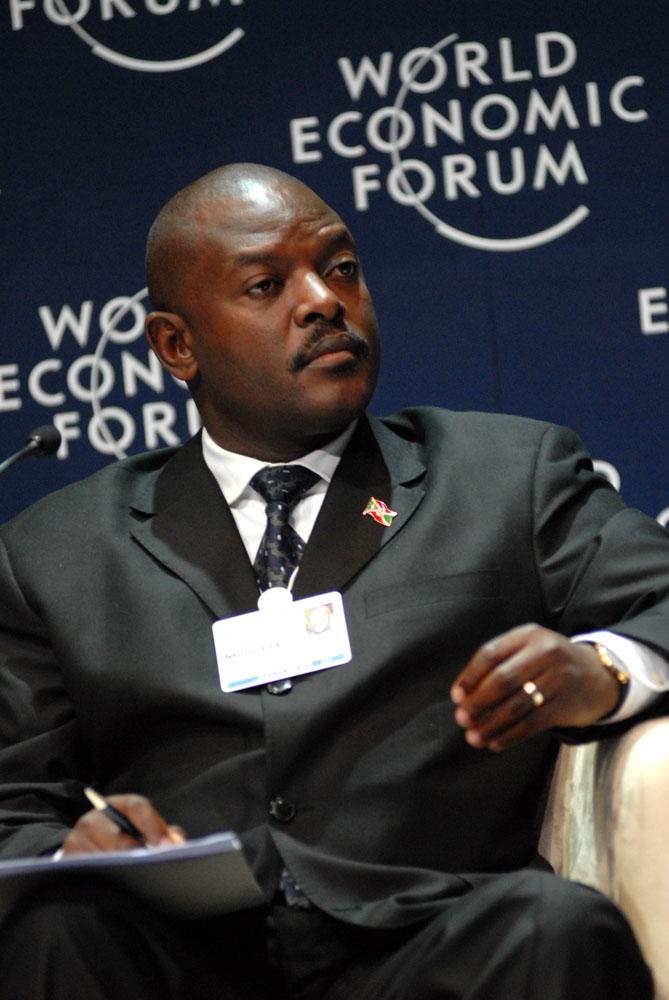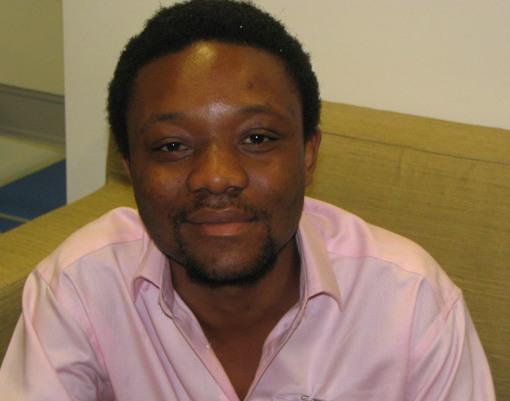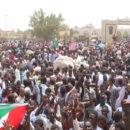Burundi: political violence a risk, but “˜genocide’ improbable – By Benjamin Chemouni


Pierre Nkurunziza, President of Burundi, who is bidding for an unconstitutional third term in office.
The political climate in Burundi currently seems to be worsening day-by-day. The most significant recent episode was a high-profile revelation by a leaked UN report that arms have been distributed to the Imbonerakure, the youth wing of the ruling party CNDD-FDD. The Burundian press subsequently confirmed these allegations. This is the lastest event in a long series that includes restriction of freedom of the press, killing or imprisonment of political opponents, and the announcement that the President will run for a third term (this contradicts the Arusha Peace Agreement).
A common thread in analysis of the current situation is to point out the risk of rekindling large-scale violence. Some commentators have even raised the spectre of genocide. But what is the actual potential for widespread violence in Burundi? Offering predictions is, as ever, a risky business, but it is useful to analyse the rationale of the different actors who may, or may not, choose violence as a method in pursuing their own political aims.
Improbable ethnic violence
The conjunction of the 20th commemoration of genocide in neighbouring Rwanda with the revelation of weapons distribution to the Imbonerakure in Burundi has spurred different commentators, and even the Burundian political opposition, to use the “˜G-word’. The central role in the Rwandan genocide of the Interahamwe, the youth wing of the then ruling party MRND (National Revolutionary Movement for Development) is well known. However, raising the possibility of genocide, or ethnic violence, in today’s Burundi seems a facile parallel. Three factors are important to keep in mind in the Burundian case.
First, the main political divisions in Burundi do not overlap with ethnic categories. The main threat to the power of the CNDD-FDD is not an organised Tutsi group. The Tutsi-dominated UPRONA (Union for National Progress), that ruled the country since independence until 1993, and then from 1996 until 2003, is divided but still part of the government and has a restricted electoral base anyway. Parties traditionally viewed as Hutu on the other hand are a direct threat precisely because they could claim to be representative of the Hutu majority.
The best example of this is the case of the FNL (National Liberation Front). Heir of the Palipehutu (Party for the Liberation of the Hutu People) and the second most important rebel group after the CNDD-FDD during the war. The FNL has been a constant target of political killings, what came to be known as “˜Operation Safisha‘ or “cleaning” in Swahili. The government also arrested then released (but is still prosecuting) Frederic Bamvuginyumvira, former vice-president and leader of the FRODEBU (The Front for Democracy in Burundi), the party which gave the country all its Hutu presidents since independence until the victory of the CNDD-FDD in 2005. Political rivalries are first and foremost intra-Hutu, which renders violence targeting Tutsi as a category ineffective to suppress challenges to the CNDD-FDD power.
Second, analysts have to recognize that Burundi has started to move beyond the question of ethnicity in its politics. Despite promising to free the country from Tutsi domination, the CNDD-FDD has appalling results in terms of development and governance. This situation does however have a silver lining: it deconstructs the ethnic stereotype of the exploitative Tutsi. The population has realized that Hutu can exploit Hutu as well. Also revealing is the increasing popularity of the Movement for Solidarity and Democracy (MSD). Although its leader Alexis Sinduhije is a Tutsi, MSD has supporters across ethnicities, drawn to the party by its discourse centred on development and the fight against bad governance.
Finally, historical analysis of genocides reveals that they are generally the fruit of a long process. This includes a dehumanizing discourse targeting an ethnic, racial, religious or national minority. This dynamic is currently absent in Burundi, even though ethnic tensions have of course not disappeared. It is not to say that ethnic violence will not occur: in such an impoverished country the minority is always an easy target, if only for others to loot their possessions.
Political violence
Violence targeting individuals because of their political orientation is nothing new in Burundi. Recent allegations of Imbonerakure training in South Kivu seems to confirm that the CNDD-FDD is even ready to resort to violence on a larger scale. But beyond denouncing the risks of increased violence, few analyses focus the rationale of different actors to (or not to) resort to violent means as the 2015 elections approach. This is however crucial in identifying the possible leverages to prevent deterioration of the situation.
The obvious first actor to consider is the CNDD-FDD. Its determination to cling onto power should not be underestimated. It is not only the result of the love of power in itself, but it is also the consequence of the corruption and clientelism the CNDD-FDD and its cronies have wallowed in since 2005, often with little discretion. A change of ruling party will raise the prospect of prosecution for many. This simple fact must be kept in mind in understanding the obsession that the CNDD-FDD has for staying in power, particularly when considering the likelihood of violence. A secret census by CNDD-FDD on the hills in early 2013 to determine who is a member of the party was denounced as a possible way to create a list of non-members – a useful document if the liquidation of opponents was to become systematic. It seems however that it was used first and foremost to intimidate the population into joining the party.
In the face of such determination, the question is to what extent the opposition will dare to challenge the CNDD-FDD. The opposition is not a homogeneous entity in this respect. Violent physical confrontation is a line that most opposition parties, although vocal, are simply not willing to cross.
Most revealing is the case of the demonstration planned last December against the revision of the constitution that would have undermined the Arusha Agreement. Organised by ADC Ikibiri (Alliance of Democrats for Change) formed by the majority of opposition parties, the demonstration was postponed officially to pay homage to Nelson Mandela’s death. But as Mandela was the first mediator of the Arusha Agreements, it would actually have been in fact a perfect day to demonstrate. It never took place and it seems that the fear of violent confrontation supported by the apparent will of the government to use force, was the real deterrent.
This reluctance to force a confrontation can be explained by the fact that a decade of civil war has produced a deep “violence fatigue”. The population, and some parties, are ready to accept a lot in order to avoid a return to violence. In addition, most political parties simply lack the organizational capacity and local mobilization relays, especially in the countryside, to take up arms.
Two major exceptions exist. First the FNL could be tempted to resort to large-scale violence. It can draw on its military experience in the bush and on its loyal base of supporters, but is weakened by divisions and attacks on its members. Second, the MSD might not have anyexperience but it has learned to tap into the popular resentment regarding governance and development, especially among the urban youth. In addition, the MSD do not shy away from confrontation, as shown by the recent clash at its headquarters last March, which resulted in the escape of Sinduhije. Whilst one can praise the party’s courage in not giving in to CNDD-FDD hegemony, this could ultimately prove dangerous. Sinduhije regularly exploits the resentment among the security forces about the lack of proper equipment and wages, and corruption at the top. This might explain the violent reactions for the government against the MSD.
Divisions
On the road to the 2015 elections, two major unknowns remain. To begin with, the level of cohesion of the army could play an important role. In particular, young soldiers are frustrated at being led by some superior officers that gained their rank fighting in the bush, but are often corrupt and barely educated. The army could turn out to be a tricky instrument for the government to use. It could indirectly mitigate the potential for violence, as the army might not blindly accept orders in case of repression. The internal dynamics of the CNDD-FDD itself are also a major unknown. A significant, but still silent, proportion of its members are indeed increasingly frustrated in the face of a party whose cohesiveness is increasingly based on corruption and clientelism. Regional divisions could be the crystallisation of alliances in the CNDD-FDD. It is hard to say if this would increase or decrease the potential for violence.
Burundi does not usually attract much international attention, but given the current situation this needs to change. It is impossible to predict what will happen in 2015, but the risk of violence is high. This assessment however should not spur us to deliver simplistic analyses. For instance, raising the spectre of genocide is counterproductive and might obfuscate important factors such as the determination for the CNDD-FDD to hold on to power or the willingness for some opposition parties, and not for others, to engage in large-scale violence.
Benjamin Chemouni is a PhD candidate in the Department of International Development, at the London School of Economics and Political Science (LSE). His research explores the variation of state effectiveness between Rwanda and Burundi. @BChemouni







I salute the analysis. Last week the UN office was regretting that some Burundi officials are playing with the word “genocide”. People need to know that the ethnic tensions can occur, but not at the same level as they used to. Burundi now faces some interior problems and hutus are fighting between them. We find tutsi in hutu dominated parties, and Uprona party is also sheltering hutus among its leaders. Name for exemple Charles Nditije and Concilie Nibigira. Both the two are political “ennemis” but they share their tutsi dominated party Uprona and both the two are hutus. Burundi faces then poverty, lack of food, the lack of transparence in managment and not ethnic tensions. This is what I can share with you. Desire Nimubona/ Burundi , follow me on @desirenim
I also share this with you: http://www.irinnews.org/fr/report/96689/analysis-burundi-s-bumpy-road-to-the-2015-polls
A young University teacher to whom I talked while I was doing the Irin story said the same thing. We face individuals “exagerating” things, qualifying crimes as they want and this is bad for our country.
Executive Breach of The Social Contract and The Absolute Need for African Exceptionalism
Many emerging democratic societies suffer from the ‘lack of accountability to the citizen syndrome’. This syndrome can be further categorized as ‘the preservation of power syndrome’ regardless of constitutional or other civic civil constraint.
Unfortunately, this syndrome is most prevalent in fragile, weak emerging democratic societies governed by an egoistic oligarchy who utterly fail to respect the rule of law in public administrative governance practice.
My comment question is simple;—Does Executive non-compliance to the [already agreed upon] terms of civil social cohesion create a [fundamental] breach within the ‘social contract’—thereby affording natural law sanction to the Citizen right to civil civic protest redress?
Does failure by an Executive to maintain social convenants already witnessed in a prior agreement [articulated and embedded within the national constitution] constitute a fundamental ordinal breach in the civil social contract existing between those who exercise authority vested by the constitution and the citizen?
If a breach in the social contract between the Executive and the Citizen has occurred—what are the rights and privileges afforded to the Citizen to take action in a manner responsible and non-violent?
Furthermore, ought the International Community of Nations express displeasure to the offending Nation State over this fundamental breach of the social contract?
Africa is indeed truly “exceptional†in being “we must always considerâ€, John Winthrop proclaimed in 1630 while sailing to the New World, “that we shall be as a city upon a hill—the eyes of all people are upon us‗ Africa is “exceptional†in multi-decades of African national citizens being grounded down into almost depraved oblivion by their elected respective African National oligarchs who care not a ‘wit’ as to the national citizen social civic wellbeing; an egregious fundamental breach in the essential civic social contract binding together both the governed and those in privilege who govern.
Africa is in gross, urgent need of ‘exceptional transformative’ leadership, whose civic civil social governing matrix will indeed be grounded and constructed and inhabited by great men/women most aware of their fundamental most great moral trust and their most great responsibilities in being truly a servant of the people “as in a city upon a hill†where “the eyes of all people are upon usâ€. Africa must transform in a manner, method most civic civil deferential to all peoples subject to governance.